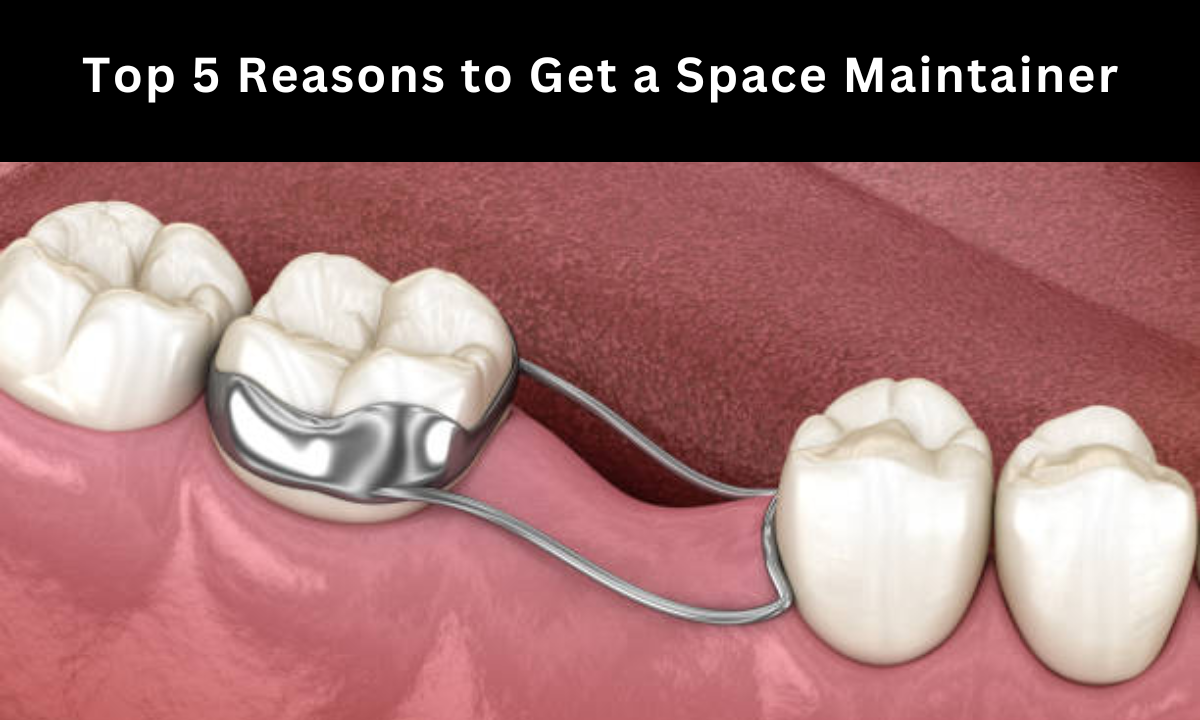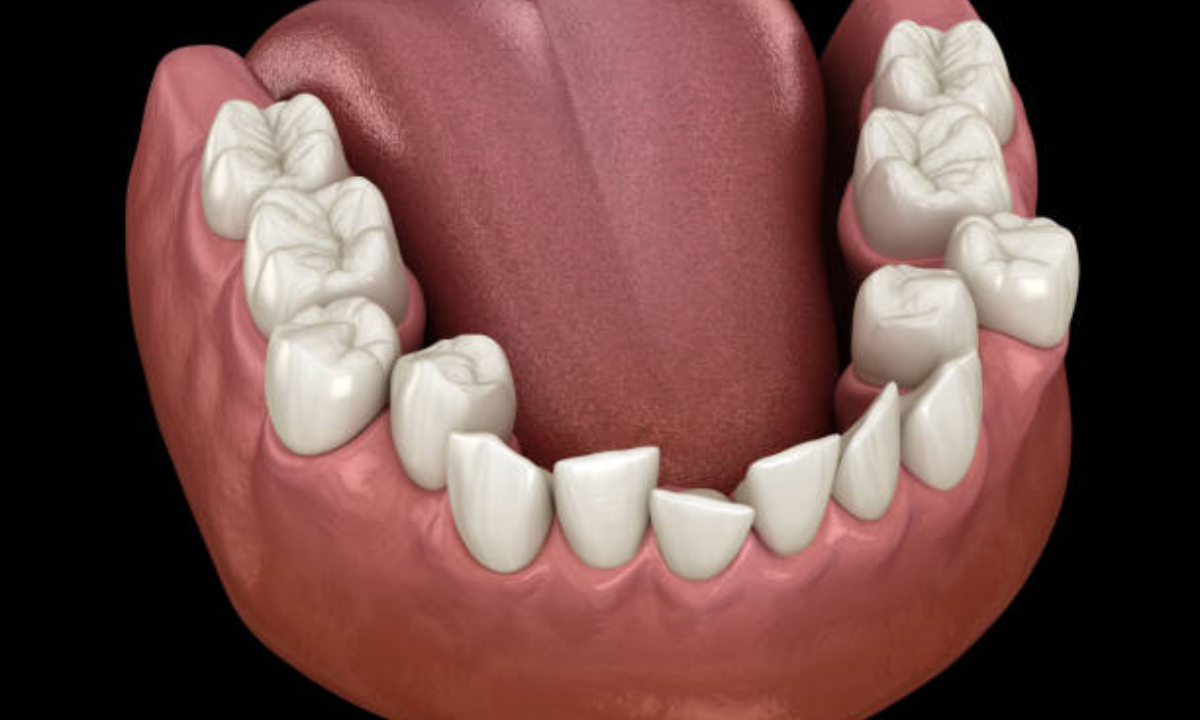As parents, ensuring our child’s oral health is crucial for their overall well-being. While we often focus on brushing, flossing, and regular dental check-ups, there is another essential aspect that often goes unnoticed—maintaining proper space for permanent teeth. When a child loses a primary (baby) tooth too early due to decay, trauma, or other dental issues, the surrounding teeth may shift, leading to misalignment problems.
Here comes the application of space maintainers. The appliances are meant for orthodontics to retain a child’s original gaps for the healthy eruption of their permanent teeth. Specialists suggest, in pediatric dentistry, the application of space maintainers, for the future saving of possible problems that can make orthodontics complicated treatments for the future.
When your child happens to lose one of his baby teeth much earlier than any other child of similar age, an orthodontist in Whitefield or a pediatric dentist can advise if he would need a space maintainer or not. The article has the top five reasons why your child would need a space maintainer and how it would benefit the long-term oral health of your child in the following sections.
1. Early Baby Tooth Loss
One of the most common reasons for a space maintainer is the early loss of a tooth. The baby tooth acts as a natural spacer, guiding the permanent teeth to erupt in the correct position. When a baby loses a tooth too soon due to decay, injury, or another problem, it often causes adjacent teeth to drift into the missing space.
This drifting can lead to:
- Irregular alignment of permanent teeth
- Teeth overcrowding
- Disorderly formation of the bite
A space maintainer prevents this unwanted movement, preserving the correct space until the permanent tooth erupts naturally. Without a space maintainer, your child may require extensive orthodontic treatment in the future.
2. Prevention of Dental Crowding and Misalignment
Proper alignment of the dentition is essential for a child’s oral function and aesthetics. When baby teeth fall out prematurely, or when they are not well looked after, surrounding teeth tend to shift into the space. Dental crowding usually occurs in the situation that permanent teeth lack adequate space for their proper alignment.
Dental crowding typically presents with:
- Teeth that overlap or twist
- Difficulty in cleaning them, thus a higher incidence of cavities
- Speech and chewing problems
A space maintainer ensures that enough space is retained for the incoming teeth, thus avoiding these problems. This helps your child have a healthy, aligned smile without braces or complex orthodontic procedures later.
3. Promotes Proper Jaw Growth
The development of a child’s jaw relies heavily on the positioning of his or her teeth. Premature loss of baby teeth can prevent natural jaw development and result in issues with a child’s bite, including the following:
- Overbite
- Underbite
- Crossbite
This would cause facial asymmetry and sometimes requires surgical correction if the developing jaw is left untreated. Pediatric dentistry employs space maintainers to allow for adequate spacing and guiding jaw development to have an optimal and well-balanced structure for the arrangement of the teeth and jaw structure.
4. Reduced Requirement of Future Orthodontic Treatments
- Orthodontic treatments include braces, aligners, and expanders. They are both expensive and time-consuming. Some children will have orthodontic needs due to natural conditions; however, it can save one both time and money if such complications are avoided.
- A parent can avoid needing braces, extensive orthodontic treatment, and tooth extractions from overcrowding by using a teeth space maintainer.
- Early intervention with space maintainers helps the child grow into a naturally aligned smile without requiring extensive treatments when he reaches his teenage years.
5. Improved Speech and Mastication Abilities
Teeth are also important in speech and chewing development. The absence of some of the teeth, especially those at the front side, makes pronunciation and speech hard to understand for children. Furthermore, missing some teeth will inhibit proper chewing, thus digestive problems.
A space maintainer ensures the dental arch is preserved to;
- Ensure proper placement of the tongue while speaking
- Easy chewing and digestion
- They do not promote habits like tongue thrusting that can lead to improper bite.
By maintaining the proper spacing, space maintainers allow children to have normal speech and ensure that they can eat without any discomfort or complications.
Types of Space Maintainers
An orthodontist in Whitefield may use different types of space maintainers depending on the needs of your child. Some of these types include:
- Fixed Space Maintainers: These are cemented to the adjacent teeth and are left in position until the permanent tooth begins to erupt. These can be used in different shapes and forms. Examples include:
- Band and loop maintainers are Used for one missing tooth.
- Lingual arch maintainers are Used in case of two or more missing teeth in the lower jaw.
- Transpalatal arch maintainers are Used in the upper jaw.
- Removable Space Maintainers – These work like a retainer but are to be removed for cleaning. It is usually prescribed in older children who can accept hygiene instructions.
Your child’s dentist will make the final decision, based on the place of losing tooth and oral hygiene conditions.
How to take care of a space maintainer
- Proper oral hygiene and check-ups are required once your child has a space maintainer. Here are some tips to make sure it works effectively:
- Let your child brush and floss regularly to avoid plaque buildup around the appliance.
- Avoid sticky or hard foods such as caramel, chewing gum, or hard candies, which may dislodge or damage the space maintainer.
- Visit a dentist periodically to track the state of the space maintainer and see if the permanent tooth is going to erupt normally.
- Properly cared for space maintainers will help preserve dental spacing adequately over time and support long-term oral health.
Conclusion
Proper spacing of the teeth in the mouth of your child is very important. Space maintainers play an important role in pediatric dentistry to avoid all future complications such as dental misalignment, crowding, and issues related to jaw development.
If your child has lost a tooth prematurely, then consulting an orthodontist in Whitefield can figure out if a space maintainer is needed. In this way, you can spare your child the agony of lengthy orthodontic treatments later in life by dealing with spacing concerns early on.
Investing in a space maintainer today can help ensure that your child will be able to sport a healthy and confident smile in the years ahead. If you suspect your child might need one, don’t delay—schedule a consultation with a pediatric dentist in Whitefield to secure their dental future.


